Masters Students
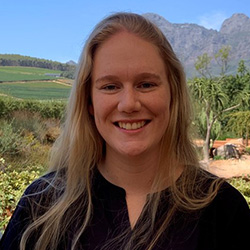
I am an observant and passionate young South African, shaped by my experiences and of growing up and living in different locations: Pietermaritzburg, Makhanda, Somerset West, Johannesburg and Cape Town. I am a keen reader with a curiosity to learn. In my free time you will find me either working on a stippling art project or taking photographs.
I completed my undergraduate degree at UCT in 2021, majoring in Historical Studies and Chinese Studies – with additional courses in English Literary Studies, Art History and Politics. My research focus is informed by my interests in language, memory and identity studies. I plan to explore the diverse and multiple histories of Chinese migrants in South Africa
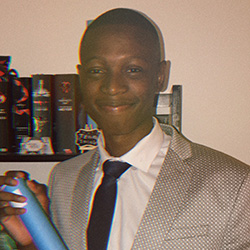
Osarumwense Asemota is an honours student at the UCT History Department. His honours thesis follows the spread of Islam in the townships on the outskirts of Cape Town during the 1960s and how people used it as a form of resistance in the turbulent years of apartheid. He is an avid football fan & fantasy football manager - although he can't kick a ball to save his life. He is also interested in languages, being able to speak Zulu, Xhosa, & English and he is currently learning Arabic. Osarumwense aspires to be a scholar within the Historical Studies department or eventually move on to the legal field.
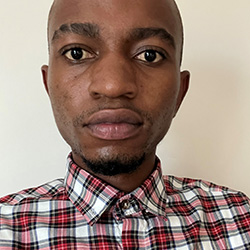
Hailing from the township of Msogwaba a few kilometres away from Nelspruit, Mpumalanga, I am a Honours Candidate at UCT's Historical Studies Department whose disciplines include Land and Labour struggles and a history of violence from a global South perspective. I hold an undergraduate Bachelor of Education degree majoring in English and History obtained at the University of Johannesburg. I am someone who is strongly passionate about linguistics, politics/international relations and historical studies particularly that related to Africa. Some of the things I enjoy doing during my spare time include binge-watching news, reading and being creative. My research paper is on conceptual history from the early 20th century focusing on the development and use of Siswati terms “sidziya” (apron) and “sidvwaba” (traditional skirt), linking the concepts to the representation and preservation of the Swati culture in South Africa.
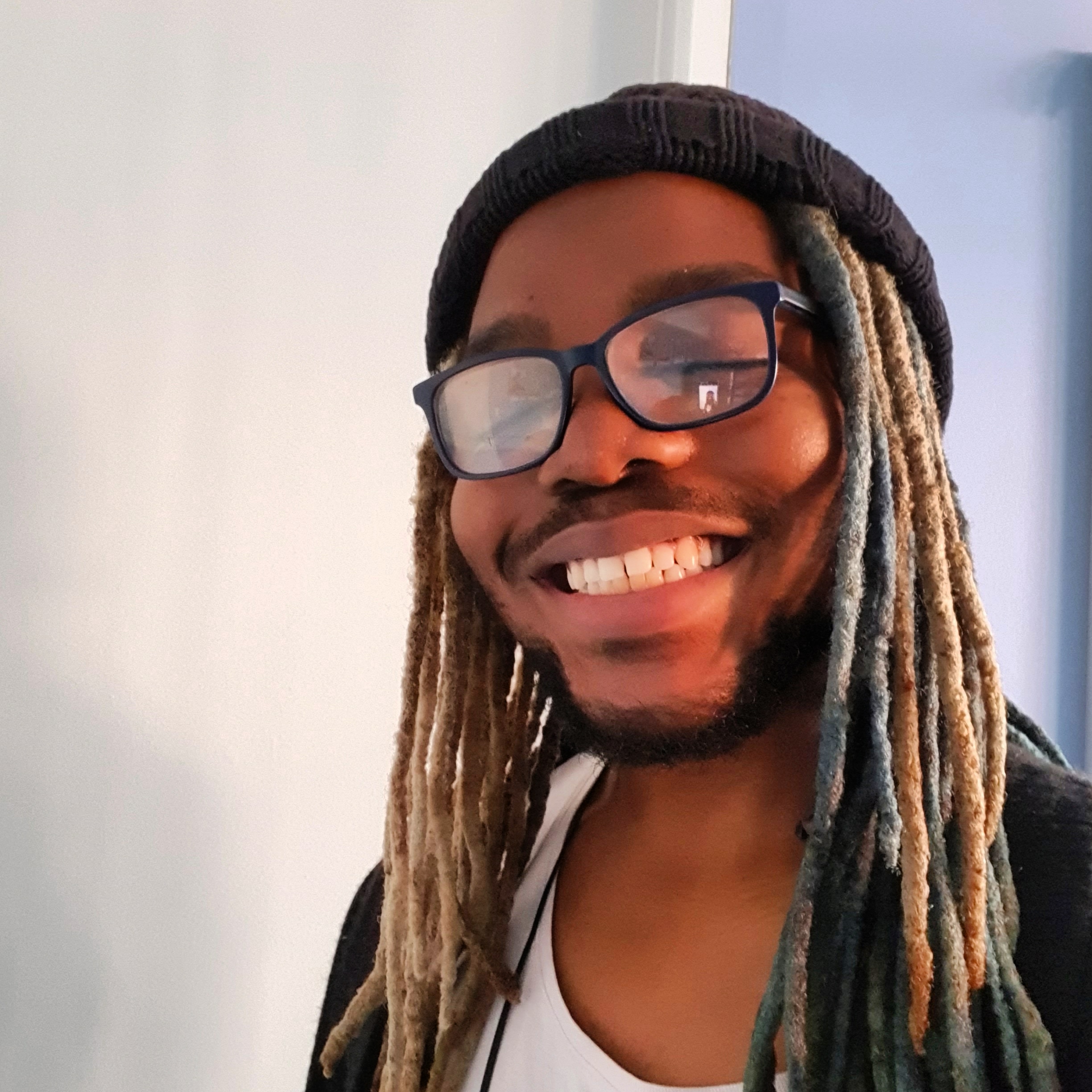
I am currently in the second year of my Master's and in my third year of the History Access programme.For my Honours degree I looked at the statue of Sir George Grey, in Cape Town's Company's Garden, and attempted to apply Tony Bennett's notion of the 'exhibitionary complex' to understand how the statue of Grey has been able to stand in its position since its erection in 1864. This project was largely inspired by the events of the 2015 #RhodesMustFall movement. The collective call for the removal of colonial paraphernalia made me question why other public monuments celebrating colonial-apartheid figureheads are still able to avoid similar calls for removal experienced by the University of Cape Town's Rhodes statue.
My Master's thesis takes a different direction from the Eurocentric focus of my Honours. For this project, I am looking at the ways in which the memory of colonial resistance is remembered in public spaces. For this, I shall be thinking about the legacy of Nkosi Jongumsobomvu Maqoma - son of King Ngqika, elder of King Sandile and renowned Xhosa military commander. There are two statues commemorating the legacy Nkosi Maqoma and I shall be analysing the suitability of the statuary medium in efforts to bring him into public consciousness.Outside of my studies, I am an avid watcher of documentaries and anime. I enjoy painting, nature walks, live events and engaging with different perspectives.
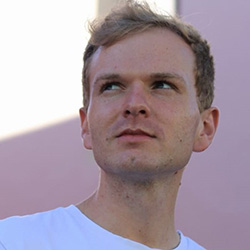
Paul Phillip van der Linde is a second-year Master of Arts student in the History Access Programme at the University of Cape Town. He completed his Bachelor of Arts and Honours degrees at the University of the Witwatersrand between 2016 and 2019, with his Honours dissertation being awarded the J.S. Marais Prize for distinguished achievement. Paul’s M.A. research focuses on formerly enslaved people and their descendants at the Cape, particularly the socio-economic conditions which enabled some of these individuals to prosper as farmers in the Stellenbosch region. Outside of academia Paul enjoys visiting museums, art galleries, and hiking.
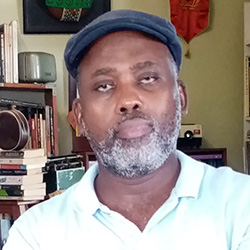
Kuthiwe mangikhulume, kodwa angazi ukuthi ngizothini, kodwa ngizokhuluma…
I am committed in radical intellectual practices that question colonial, and neocolonial archival practices in South Africa, in particular. I postulate that since the archive is a scene of crime, this archive therefore, urgently requires stubborn progressive epistemological revolts. Mayihlome!
My MA mini dissertation on Mazisi Kunene’s epic poem, Emperor Shaka The Great (1979), investigates among others, how the exiled poet, re-memorises his childhood, and that of the Zulu king, Shaka kaSenzangakhona, to celebrate ‘home’, as a place of enduring wisdom and heroic memories. Epic dances with fire in the healing rains. Drawing from the work of the South African literary critic, Lewis Nkosi, among others, I am committed to critical scholarship that centre Blackness, and rises against the violence of Western modernity, and its ever-mutating traumatic, and maddening aftermaths.
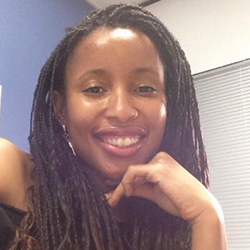
Sihle Motsa is a Master’s student and the History Access Scholar. She is a writer and art practitioner interested in curatorial and archival research methodologies. She is an interdisciplinary scholar interested in linguistics, visual cultures, gender and Black modalities of being that complicate futurity. Her research traces the temporal dimensions of the archive exploring how myth and prophecy betray an investment in the future and more importantly that an exploration of these meaning making systems may help historians make claims on a future whose plurality is threatened by the dominant futurist discourse. She is interested in the types of knowledges that may emerge from reading the future as a historical period. She has worked as a sessional lecturer , authored multiple articles for various art publications including a chapter for the Art South Africa Initiative and a catalogue essay for the “When Rain Clouds Gather” exhibition Curated by Nontobeko Ntombela and Portia Malatjie at the Norval Foundation.
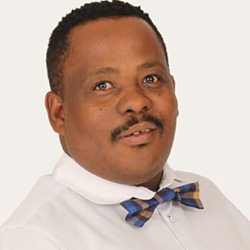
My Masters thesis at Wits University was an institutional study that sought to investigate South African police’s predilection to violence in policing protests. I had to do that by combing through archives. That exercise showed me flames partly due to limitations of necessary tools for such an exercise because my background is political science. I then took a resolution to enroll for MA in the historical studies department here at UCT. This year I have taken a keen interest on researching the historical interactions between the Jewish women of Johannesburg and their black domestic workers. When I am not stressed by academic work, I watch comedy shows.
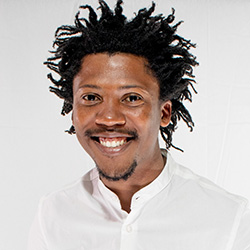
Sanele KaNtshingana is a PhD candidate in Historical Studies at the University of Cape Town. His research looks at Xhosa political life intellectual discourses and how the ideas of umbuso, ubukhosi, and rule in the ‘deep’ past were mobilized by amaThwasa osiba, African Intellectuals, in the early nineteenth and twentieth-century Cape Nguni region. Outside of the university Sanele serves on various collectives that are serving young people who are situated on the deep fringes in post-apartheid South Africa. Sanele is committed to the ideas of insurgent black intellectual tradition and activism, and co-engaged scholarship as a liberatory tool.
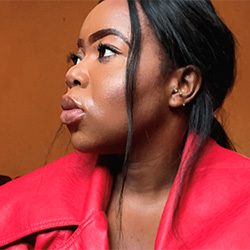
I am a 27-year-old postgraduate student from the University of Johannesburg with an M.A in History. I am currently enrolled for my PhD in History at the University of Cape Town. For my research so far, I have specialized in the social histories of drugs and medicine particularly dagga. From that research, I have managed to produce two academic papers, one that is published in Historia Journal and one in an international journal known as the Social History of Drugs and Alcohol. My current research interest is in the policing of dagga in Pondoland Eastern Cape, where I investigate the use of glyphosate herbicide as a recent method to destroy dagga plants and combat the supply side. Furthermore, I am interested in the role of women in the cultivation and business of dagga.
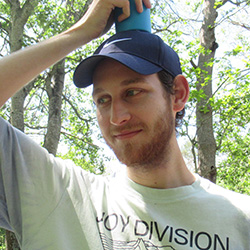
Wade Smit is a 2nd-year PhD candidate at the Historical Studies department at the University of Cape Town whose work focuses on conceptual history, ecology, and isiZulu literature. His thesis is a conceptual history of umbuso in isiZulu literature in the 19th and 20th centuries. He is also a writer of fiction and poetry in English, isiZulu, and Afrikaans.
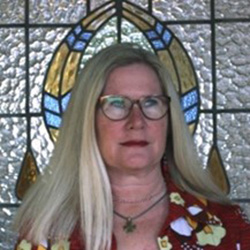
Dr Hayley Hayes-Roberts is a Design Historian, NIHSS peer mentor and was awarded an interdisciplinary PhD in History from UWC in 2020. Her thesis ‘Frameworks of Representation: A Design History of the District Six Museum in Cape Town’ related to how the museum utilised design as a strategic and political tool to navigate and negotiate its presence and the legacies of apartheid forced removals in the city. Her areas of expertise and experience include Museum and Heritage studies, exhibition curatorship, Art History, Design Thinking, Design, Social, Textile, Fashion and Oral History. Hayley began her career as a Graphic and Textile designer, later completing a B: Tech Degree in Post school Education and lectured in Textile History, Design and Visual Art. Hayley holds a Postgraduate Diploma in Museum and Heritage studies, UWC (2010) and a MA in History with a specialization in Museum and Heritage studies, cum laude, UWC (2012) that surfaced social, design and architectural histories through the Sacks Futeran & Co buildings in Cape Town. As a senior researcher, (2011-2013) headed the Two Rivers Project, a District Six Museum initiative to work with the memories of forced removals at six sites in the southern suburbs of Cape Town. A collaged visual memory box archival system was designed for the museum. Her most recent position was at Iziko Museums of South Africa (2014-2020) in Social History education resource development and facilitated a Fashion History, Textile studies and Design History student mentorship programme enabling a critical awareness of design while fostering archival research skills and design studies within a museum context. Research interests include post-apartheid museum design and curation, cultural branding, memory methodologies, gender and design, interdisciplinary research, visual history, intangible cultural heritage, cultural tourism, craft skills, expressive arts in healing trauma, and regeneration of the social self. Recipient of DAC and NIHSS scholarships (2010-2020).

Lloyd Melusi Maphosa is a Business/Economic Historian who completed his PhD at Stellenbosch University in 2020. His area of focus is the history of joint stock companies in colonial South Africa. Using micro-data from Limited Companies records, he explores various themes about the impact of joint stock companies in South African history as well as how they affected capitalist relations. He is an active member of the Frontiers of Finance; a research group focusing on the business history of South Africa. His work mostly uses both quantitative and qualitative methods. Apart from this, he is fascinated by cultural histories, African political ideas, and studies of gender, inequality and the development of Africa.
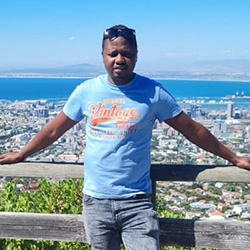
I, hold a PhD in History from Stellenbosch University. My PhD thesis explores the social, environmental, and political history of drought in Zimbabwe. My research in general falls under the field of environmental history and my broad research interests are social, environmental, and economic history (qualitative), peasantry, and African studies. Currently, I am researching on Indigenous/cultural weather and or climate interpretation practices. My hobbies? They all disappeared in the course of my doctoral studies completed during the pandemic. Yet to recover.